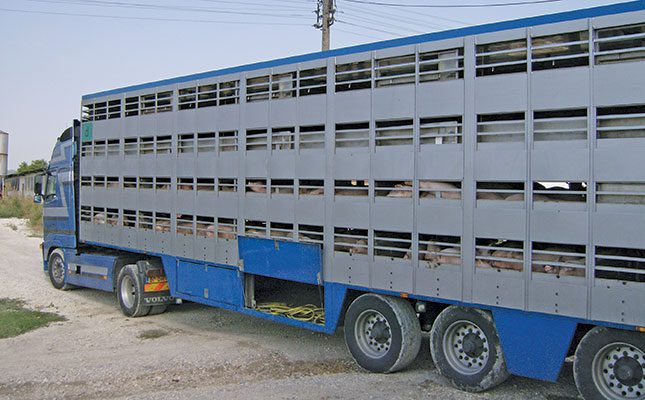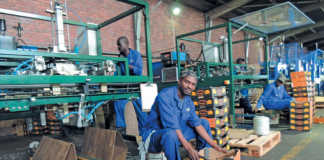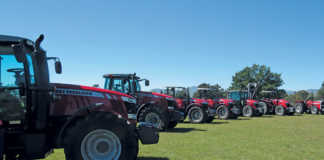
Photo: Wikimedia Commons
Before attending an auction with your animals, it’s important to prepare for the event. Bear in mind that at an auction, you are not only hoping to achieve the best price possible for your animals, but are also establishing or cementing a reputation for your business.
If your animals are in poor condition, injured or visually unappealing in some way or another, you may be setting yourself up for future failure, as buyers may begin to associate your brand and business with inferior quality.
Properly preparing your animals for auction is important to ensure they are healthy, well-presented, and market-ready. If your animals are in good condition it can help you achieve better prices while ensuring their well-being.
Before the auction
Conduct a thorough health check of the animals you intend taking to the auction. Ensure they are free from diseases, parasites, and any visible health issues. Consult a veterinarian if needed. Also make sure that your animals are up to date on vaccinations and treatments as recommended by a veterinarian.
This helps prevent the spread of diseases and demonstrates your commitment to responsible animal care. Where relevant, ensure your animals are properly identified with tags or markings that match any necessary documentation.
This helps prevent confusion and ensures accurate records. While an animal’s genetic potential cannot be indicated by visual appraisal, buyers still buy with their eyes.
For this reason, clean and groom the relevant animals to present them in the best possible condition. Trimming hooves, cleaning coats, and attending to any grooming needs can improve their appearance.
Make sure that you weigh the relevant animal before the auction. Potential buyers are usually interested in how much the animal weighs, as weight is a key factor in determining prices and suitability for different markets.
You can only expect a good price if the animal is healthy, preferably A-grade or B-grade, not too lean or too fat, and castrated. AB-grade fetches a lower price and C-grade the lowest price.
It is also important to ensure that you have the correct documents and paperwork on hand when transporting animals. These rules and regulations may change depending on the health status of the national herd, as in the case of a foot-and-mouth disease outbreak.
As such, keep up to date with recent announcements, or keep in close contact with the auctioneer, who should be well informed on these matters.
If you cannot transport your animals yourself, ensure that you arrange the necessary transport to the auction site. The vehicle must also adhere to relevant legislation. It should, importantly, be clean, allow for a steady flow of fresh air for the animals, and have a railing to stop them from jumping out.
Also, it is advised that you obtain a certificate of removal from your local South African Police Service stock theft unit. Without this document, you could be fined or even have your animals confiscated. Avoid overcrowding, as this will lead to increased stress for the animals.
Minimise stress to your animals in the days leading up to the auction. This can be achieved by avoiding sudden changes in diet. Make sure you handle the animals gently, and provide a comfortable, clean and quiet environment.
Finally, familiarise yourself with the specific rules and regulations of the auction you’re attending. Different auctions may have different requirements for animal presentation, health status, and documentation.
The big day
On the day of the auction, make sure you arrive earlier than the required time to settle your animals. Herd and flock animals are particularly sensitive to changes in environment, and so setting time aside for this is an important means through which to keep your animals as stress-free as possible.
It’s also important to remember that your animal may not sell at the auction, so you must have a backup plan in mind. This may involve having transport available to take the animals that have not sold back to your farm.
Remember that each species of animal and each auction may have specific requirements and considerations. It’s essential to follow the guidelines provided by the auction house and adhere to best practices for animal welfare and market readiness.
When arriving at the auction venue, fill out the acknowledgement of receipt form, which will require you to supply your name, address, ID number and stock identification details. Remember that your livestock still belong to you at this stage and remain your responsibility, and only become the responsibility of someone else when the animal is officially sold.
Selecting animals for auction
When selecting animals for auction, you need to ask yourself two questions: which animals am I going to sell, and why? Bear in mind that auctions use classification characteristics that are determined by the animal’s age, fatness, conformation, damage and sex.
If you are using the services of an auctioneer, they can help you with these classification characteristics. They will ask you to supply relevant information about the quality and classification, gestation status, weight and reserve price of your livestock.











